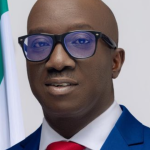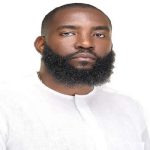
Kemi Badenoch has defended her remarks about Nigeria following criticism from the country’s vice president, Kashim Shettima, who accused her of disrespecting her heritage.
The Conservative Party leader, who was born in the UK and spent much of her youth in Nigeria, has often spoken about living with fear and instability in a country she describes as plagued by corruption.
On Monday, Nigeria’s Vice-President Kashim Shettima proposed that Badenoch might “remove the Kemi from her name” if she did not feel pride in her “nation of origin.”
According to BBC on Wednesday, In response to Shettima’s suggestion that she should “remove Kemi from her name” if she lacks pride in her Nigerian roots, a spokesperson for Badenoch said she “stands by what she says” and emphasized that “she is not Nigeria’s public relations representative.”
“She leads the opposition and takes great pride in her role in this country; she speaks the truth, and she presents things as they are and will not soften her words.” He told reporters.
Shettima’s remarks came during a speech on migration in Abuja, where he stated that his administration remains “proud” of Badenoch, despite what he described as her “attempts to denigrate her country of origin.”
He compared her stance to that of Rishi Sunak, the UK’s first prime minister of Indian descent, who Shettima described as “a brilliant young man” who “never denigrated his nation of ancestry.”
Badenoch, born Olukemi Adegoke in Wimbledon in 1980, spent her childhood in Lagos before moving to the United States, where her mother worked as a physiology professor.
She later returned to the UK at 16 to reside with a friend of her mother’s due to Nigeria’s political and economic challenges and to pursue her A-levels.
After marrying Scottish banker Hamish Badenoch, she adopted her husband’s surname.
Earlier this year, at the Conservative Party conference, Badenoch drew a sharp contrast between the freedoms she found in the UK and the fear she felt growing up in Lagos, “where fear was everywhere.”
Last week, during a visit to the US, she described her hometown as “a place where almost everything seemed broken.”
Her experiences played a significant role in shaping her conservative beliefs and positioning her against socialism, she said.



